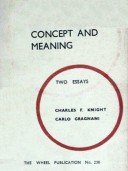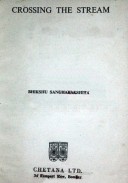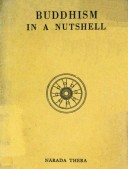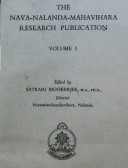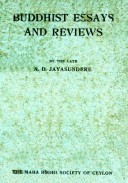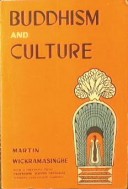Tìm Sách
Sách tiếng Anh-English >> Concept & Meaning
Thông tin tra cứu
- Tên sách : Concept & Meaning
- Tác giả : Charles. F. Knight & Carlo Gragnani
- Dịch giả :
- Ngôn ngữ : Anh
- Số trang : 24
- Nhà xuất bản : The Wheel -Buddhist Publication Society Inc. Sri Lanka
- Năm xuất bản : 1977
- Phân loại : Sách tiếng Anh-English
- MCB : 1210000003430
- OPAC :
- Tóm tắt :
Concept & Meaning
Two essays by Charles. F. Knight & Carlo Gragnani
The Delusive Concept
C. F. Knight
Few people realize to how great an extent their whole lives and thought-processes are dominated by concepts. The concept is a general notion or idea arising through one or more of the senses, which is then reduced to terms of language after a mental classification.
We are confronted with a phenomenon, and through one or more of the senses it is noticed as an object. The mind receives the sense-impression, proceeds to investigate it, and comes to a decision in regard to it which may lead to impulsive non-volitional action, or to deliberate volitional action, and then the incident is registered as a memory and sinks down into the subconscious—and so a concept is born. In future, a word or words will be used to describe the experience.
Suppose that in our travels we come upon a mass of water confined by its banks. The senses react ‘to the object. Through visual-consciousness its presence is impressed on the mind. The mind investigates it visually, and if it is flowing, we say it is a river, or if so surrounded by its banks that it cannot flow, we say it is a pond. Both “river” and “pond” are conceptual expressions to convey our sense impressions and experience, and to differentiate between flowing water and confined water. “River” and “pond” have become concepts of a mass of water under different conditions, and imply a permanently fixed identity of that particular phenomenon. Even when during drought the “river” no longer flows, the concept of “river” still holds good — it is not a “pond” or a “waterhole”.
The search for meaning
by Carlo Gragnani
 Facebook
Facebook
 Google
Google
 Google+
Google+
